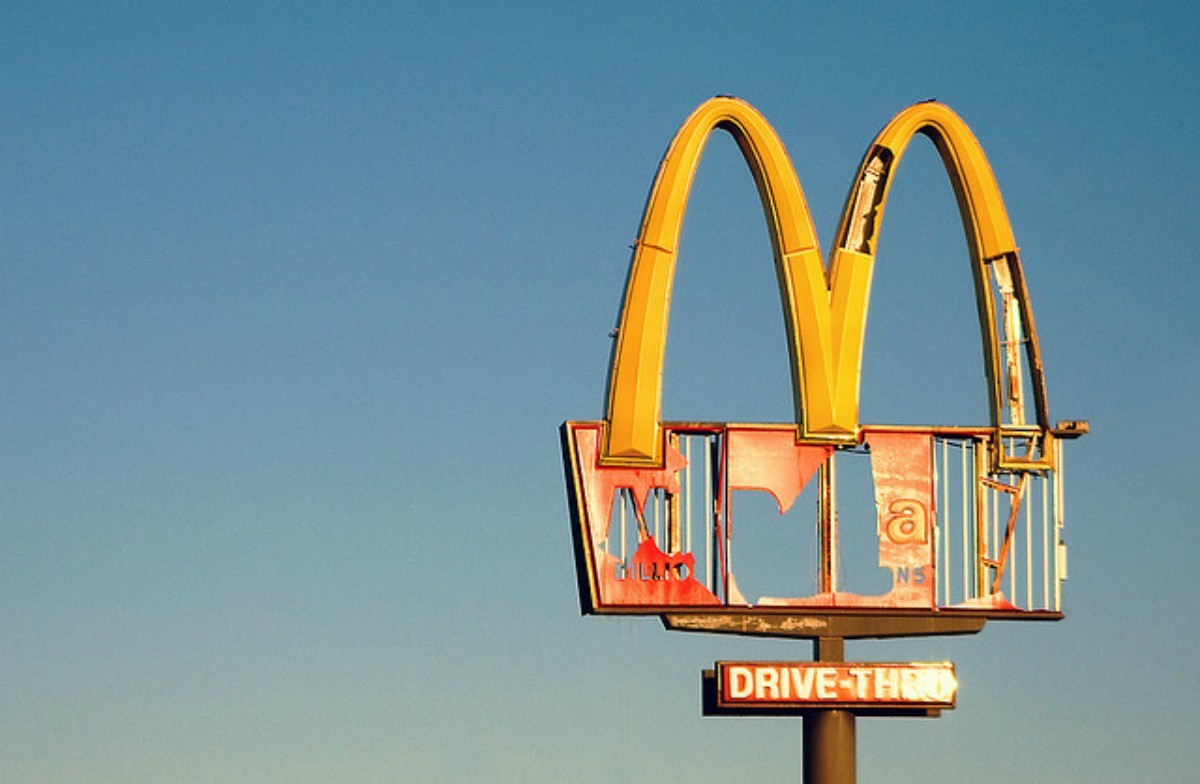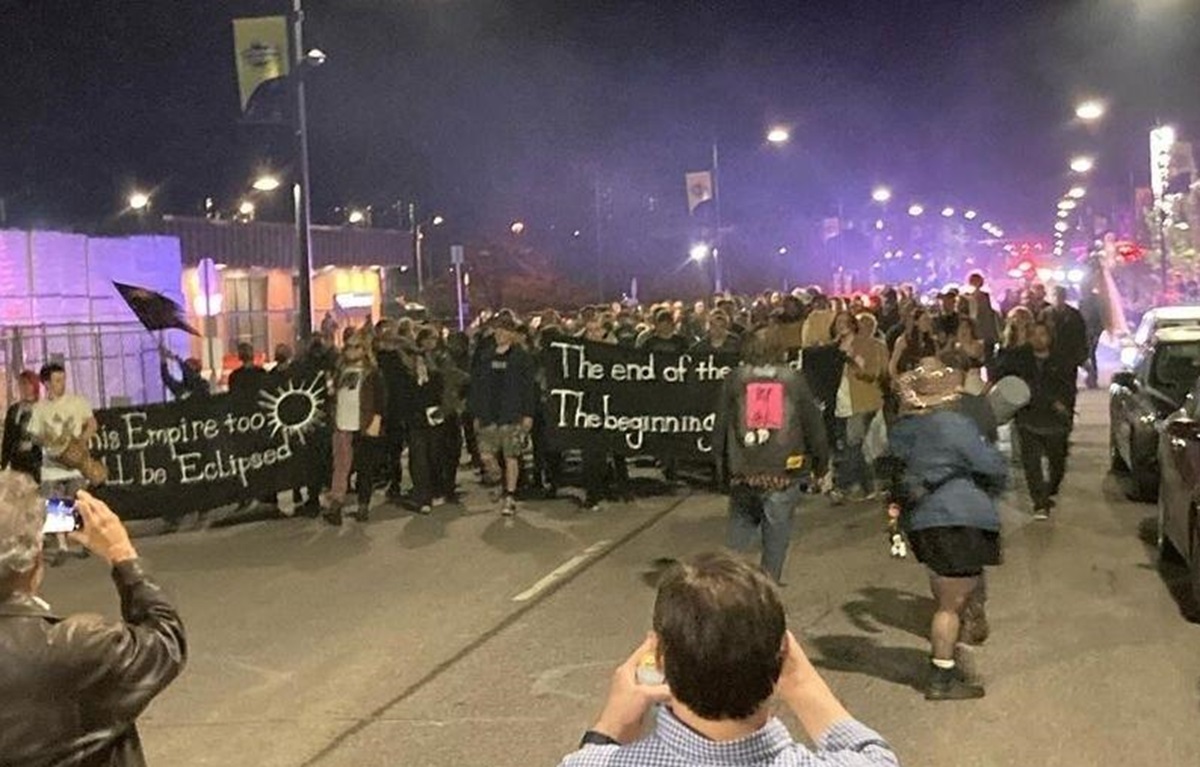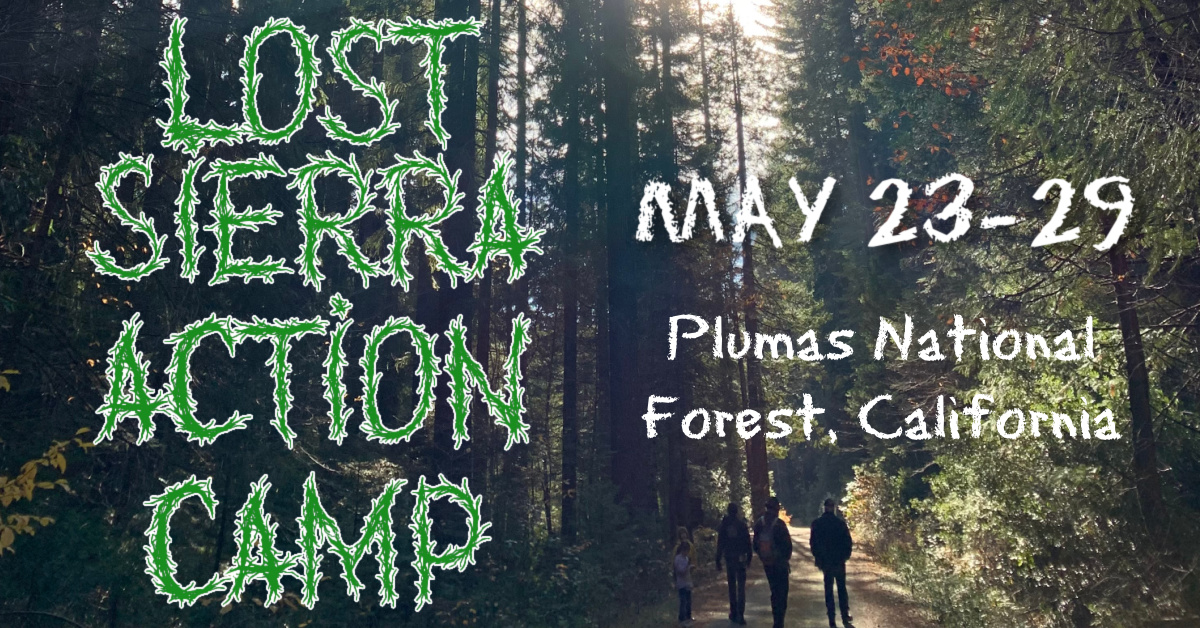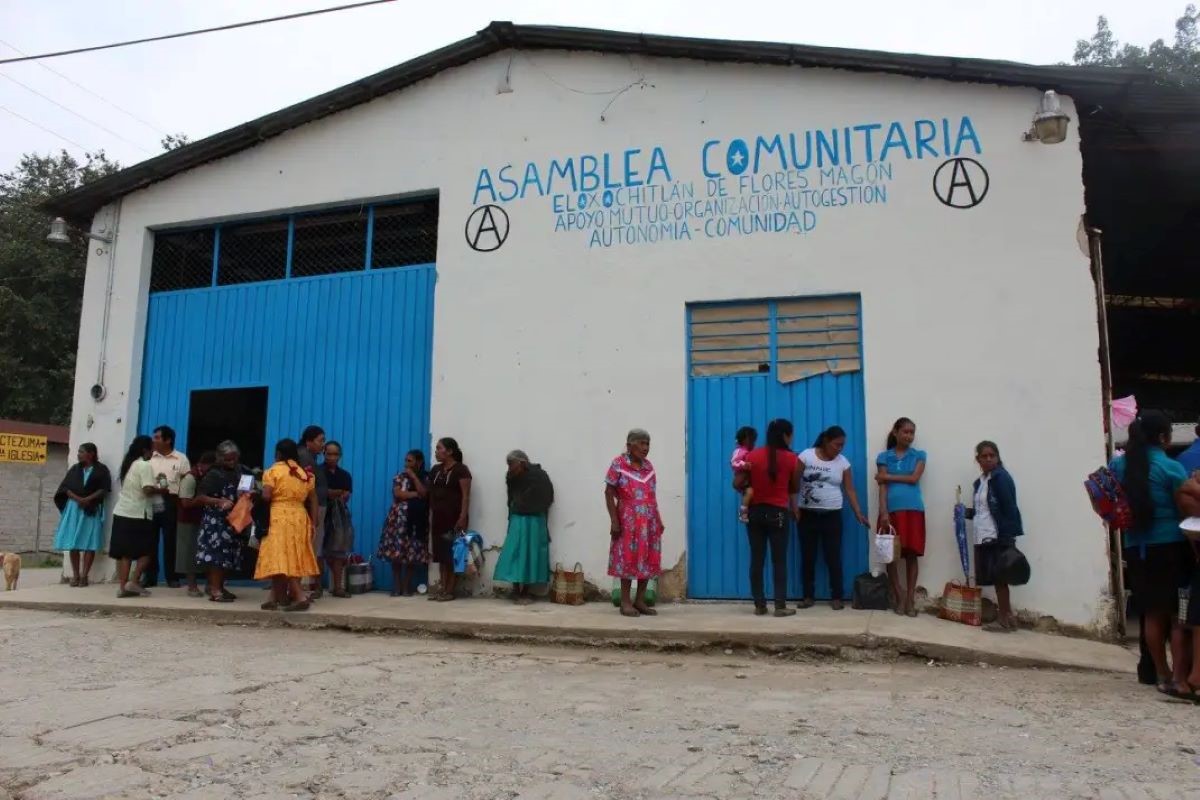Filed under: Capitalism, Civilization, Editorials, Environment

The world was white. From ground to sky the white was constant, and etched in it were the vertical brown streaks of tree trunks. Stepping outside on the first day of spring the forest around my house was gone, entombed in snow. Ice came first, so that when the snow followed for several hours it sheathed every branch and twig. Heavy with now frozen leaves, the smaller beech are bent downward, tips touching the ground until all of these young trees become arches, man sized croquet wickets frosted and strewn about the land.
On the barest winter day, I can look to the southeast and make out the shape and color of my nearest neighbor’s house through the foreground of maple and poplar. Today there is just the solitude of white.
The unseasonable eight-inch snowfall was followed days later by highs in the sixties, which retreated to nights below freezing, and only days later shot back into the seventies with beaming sun, to land once again in the cold of the thirties. The entire month of April has been a mix of glorious spring warmth and bouts of freezing rain and snow. Apple trees are budding, hyacinths are donating flashes of pink and purple to the landscape, and trout lilies are breaking from the leaf litter in such densities as to make the forest floor look like it has a carpet of grass. Then a quick layer of ice will fall in the dark of night to test them all.
—
In early April, the House of Commons Library detailed how the richest one percent of the population is on track to own two-thirds of all of the world’s wealth by the year 2030, should trends maintain as they are. Oxfam reported prior to this that eight billionaires have as much wealth as the poorest half of the global population – 3.6 billion people. All of the land that is being gutted and made uninhabitable, and all of the laborers the world over who stoop and heft and daily erode their bodies through exertion and chemical exposure are part of a great machine that exists to send a steady stream of excess to a small handful of individuals.
Capitalism was supposed to have corrected the contradictions and failures of feudalism, and it seems to have done so by creating a class of people with no loyalties, no fidelity to place or people or principle other than a berserk lust for profit. Capital and its controllers float freely over the borders that cage the underclasses. Money and power write and erase laws, and at whim wage war against the peasant class and nonhuman life with a cold business class gusto.
Centuries ago, the edicts of lords could only reach so far. Kings and their vassals had broad power of life and death within the ringed walls of cities. This power held sway in the nearby villages and hams, but dissipated at the edges of settlements until the commands that they bellowed were shorn of all pomp and circumstance in the reality of the wilderness. In the wild there is no king and money buys no quarter, a truth so bare that the masters of civilization have tried to destroy any incarnation of wilderness the world over with visceral contempt.
The wild suffers no man’s stories. The order of the world was set in the rock and soil long before any human named them, and the immutable simplicity of this order is visible in the golden sunlight that beams through a forest canopy, in the sweep of a raptor’s flight as it falls upon its prey, and in the stinking decay of a maggot eaten animal slowly returning its flesh to the ground.
We are invited to walk within this order, to find humility in the gifts and tragedies of nature. Conversely, if we try to subjugate this order to our own narratives, then we are invited to suffer and die. The lords of capital, who worship a god named production, have chosen the latter. Technocratic full spectrum dominance casts eyes over the entirety of the planet.
Where are we to escape to?
—
This past week French police came in a force of thousands to evict the ZAD, a sprawling piece of farmland crisscrossed with hedgerows that has been occupied by anarchists and recalcitrant farmers for years in an attempt to prevent the construction of an airport. Previous eviction attempts always failed and sparked waves of tumultuous protests in the cities. In January the French government finally abandoned plans to build the airport, and this latest attempt to boot the anarchist squatters was the most intense.
Blockades were built and fire bombs thrown in response to police concussion grenades and tear gas. After days of battling the residents of the ZAD, which included the wholesale destruction of many of the homes and structures they had built there, the state finally backed off, unable to break the will of the occupants. The victory of the Zadists is not total however, as police currently hold a piece of the land under their control, and have thousands of officers stationed in the region. Barricades are being rebuilt, and the future of autonomous life in the ZAD stands on a razor’s edge, as does the success of people around the world who attempt to carve out a space for themselves to freely exist.
For the Zapatistas in Mexico, the Kurds in Rojava, and even all of the people camped out on a pipeline easement in the backwoods of the rural United States, danger abounds for those who dare shuck off the rule of the wealthy.
If the wilderness is gone, we fight where we stand. Instead of escaping to an unseen frontier, let us invite the wild in. Let it consume civilization from the inside out.
—
Eight clouds arise. The eightfold fence of Idzumo makes an eightfold fence for the spouses to retire. Oh! That eightfold fence.
-Kojiki, “Records of Ancient Matters”
In James Clavell’s novel, “Shogun,” the character Mariko explains to Blackthorne that in a world of paper walls and crowded spaces, that to avoid going mad and killing one and other, they rely on a type of mental compartmentalization, hiding their true selves deep within a mental maze. She refers to this as the “eightfold fence.”
In a world of facial recognition technology, big data, electronic tracking of the movement of nearly all people in some regard or another, are we not pushed deeper and deeper within the fence complexes of our minds? As civilization and its capitalist architecture demands more and more of our time, our effort, and our attention, less and less remains for us to keep for ourselves. Interests and hobbies are commodified as advertising opportunities. Free time is gig time, driving around strangers for a few extra dollars. The precious moments of our lives are harvested by corporations to be sold back to us as monetized Instagram “lifestyle” posts.
Our eightfold fences shall guard our hidden wild. Within us we can foster vast wildernesses and let them grow fecund and thick. Loving the smell of wood smoke and the bitter cold of a stream clinging to our ankles, the wind pressing on our faces and our lover’s breath on our necks. Detesting the rich with contempt for their pathetic pleasures while desiring so entirely to watch the failure of their industrial projects. When the wilderness is rooted deeply within our thinking, safe from being uprooted by contact with the madness of the world, we can safely expose it to one another, and foster a wild amongst us.
They have worked very hard to make commerce the primary human relationship. We cannot cede the space between us, the last space, the space where all potential for rebellion to their false order exists.
We must let each other know that we have no love for this false narrative. We must make it safe to declare that our allegiance is to life, not to the dreams of wealthy men. The wilderness can be reborn between us, and there give us refuge.
—
A chill blew across the land with the gray dawn. Diagonal rain falls on my daughter and me as we walk past the barn to tend to our morning chores. Mayapples seem to have all decided that this was the morning to reveal themselves. They line the drive like sentries, somehow already inches high where yesterday they were completely hidden beneath the soil. Dark pink flowers are blossoming on the tips of the jane magnolia, daring to brave the cold air that feels entirely out of place.
We are invited to take our place within the order of the world. Or we are invited to die.





